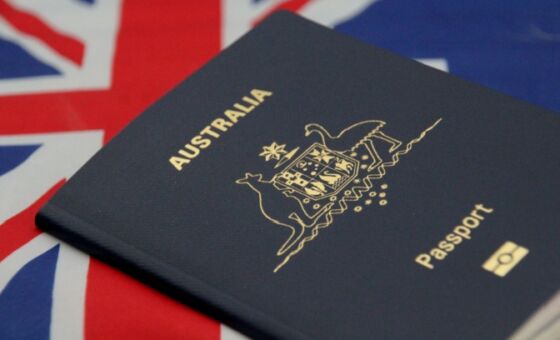What are travel insurance exclusions?
Travel insurance exclusions are clauses stated within policy documentation, such as the Product Disclosure Statement (PDS) and Target Market Determination (TMD), that describe situations in which insurance cover is likely to be revoked. Understanding what these travel insurance exclusions are, as well as how and when they apply, is a good way to prepare in the unfortunate circumstance that you need to make a claim.
There are common exclusions that apply to most policies, but additional exclusions may apply across different types of travel insurance, such as backpacker, cruise, one-way travel, seniors, family and children and under 18s-specific policies. These policies may also come with different claim limits and sub-limits. It’s important to read the PDS and other relevant product documentation before purchasing travel insurance to see what is and isn’t included.
What are some common travel insurance exclusions?
Some of the most common travel insurance exclusions are:
- Irresponsible and careless behaviour.
- Participating in high risk sports and activities (without appropriate cover).
- Pre-existing medical conditions (which haven’t been approved by your insurer).
- Travelling despite government advice and warnings.
- High value items (without appropriate cover).
- Breaking of local laws and regulations.
- Making a claim when you’ve already been compensated.
- Travel cancellation and disruption due to company insolvency.
What does travel insurance not cover?
Here, we take a more in-depth look at some of the situations where travel insurance will typically not cover you, and why.
Irresponsible and careless behaviour
Insurance providers typically don’t cover situations that could have been prevented through reasonable safety measures and/or general common sense. This can include failing to report the loss, theft or damage of your belongings to the relevant authorities (like police) and your provider in a reasonable amount of time, leaving your belongings unattended (especially in public places). This can also include failing to listen to safety directions and changing your mind over whether you want to go on your trip.
Providers usually won’t cover claims concerning situations in which you intentionally put yourself in danger, especially if you were deemed to be under the influence of alcohol and/or drugs. Insurers may make an exception to this if you’re trying to save a person’s life, but this will depend on your policy.
Participating in high risk sports and activities (without appropriate cover)
Many travel insurance policies offer add-on coverage for high risk sports, such as skiing/snowboarding, scuba diving and rock climbing, at an additional cost. This is due to the higher risk of injury and claims relating to these activities. If you choose to participate in these activities without an agreed level of cover, your policy may be voided and you could be left with significant out-of-pocket costs if your injuries need medical attention.
Pre-existing medical conditions (which haven’t been approved by your insurer)
If you have a pre-existing medical condition and you fail to disclose it to your insurance provider, you will often be denied for any claims related to that medical condition. This may also apply if you travel despite medical advice directing you not to. Some insurers may request a medical examination before providing cover for your condition.
Travelling despite government advice and warnings.
The Australian Government’s Smartraveller website provides up to date advice for Australian travellers. They use a four level scale that goes from ‘exercise normal safety precautions’ (level 1) to ‘Do not travel’ (level 4). The ‘Do not travel’ label is given to countries where both your health and safety are at extreme risk, often due to a higher threat of terrorist activity and conflict, violent social unrest, widespread infectious disease or critical levels of violent crime.
The Australian government may also issue travel bans for these types of countries. If you choose to travel to a country where the government advises you not to travel, you will more than likely void your travel insurance or your provider may reject or reduce your claims relating to incidents that occur in these locations. This may also apply if you contract an infectious disease in a country where vaccinations are recommended. Smartraveller recommends which vaccinations you should get before travelling to each country.
If you travel to a country currently experiencing a natural disaster or pandemic, your travel insurance also may not cover you. Most travel insurance policies will only cover you for unforeseen events, so if a reasonable person in your situation would have been aware of a natural disaster occuring at the time you purchased the policy, you may not be covered. A reasonable person is often considered to have been made aware of such an event when the mass media begins covering said event or a travel advisory is issued in regards to it. Some insurance providers do cover trip cancellation in regards to natural disasters and pandemics, but you would need to check the PDS and relevant policy documentation to confirm this.
High value items (without appropriate cover)
If you decide to travel on a basic travel insurance policy with expensive items such as jewellery (like engagement rings) or mobile phones, your items may only be covered up to a certain ‘unspecified item’ claim limit. There are also certain items, like musical instruments, sporting equipment, bicycles and watercraft, which may be completely excluded from policies.
Breaking of local laws and regulations
If you break the law, as well as certain rules and regulations, during an incident that results in you making a claim, your provider will more than likely void your policy or deny your claim. Claims like these usually come in the form of riding a motorbike/bicycle without a helmet, ignoring road or driving rules while using a rental vehicle or committing a crime relating to a personal liability claim.
Making a claim when you’ve already been compensated.
Making a travel insurance claim when you’ve already been compensated for an incident will result in you claim being rejected (e.g. you damage a rental car and receive an insurance pay out from the rental company to cover your out-of-pocket costs and then attempt to make a travel insurance claim for the same incident). You can usually only be compensated once for an incident. If you are found to be intentionally making additional claims after being compensated, the consequences can be severe and you may be charged with insurance fraud.
Travel cancellation and disruption due to company insolvency
While some travel insurance policies may cover the costs of disruption to and cancellation of your trip, if your travel agent or airline goes bankrupt you may not be covered. If your provider doesn’t cover insolvency, you may be left with out-of-pocket costs if, for example, your flights were cancelled due to the airliner going into voluntary administration or your travel agent went bankrupt and you aren’t able to refund your trip (you may be eligible for a credit card chargeback if you used one when booking).
What medical conditions are not covered by travel insurance?
There are some medical conditions that travel insurance providers will usually not cover. Conditions like terminal illness, chronic lung disease, certain types of cancer, cardiovascular disease, congestive heart failure, those that require oxygen, those awaiting surgery, those relating to mental health and chronic pain are generally not covered. You can find out which conditions your policy covers by reading the PDS and other product documentation or contacting your provider directly. That being said, these conditions do not exclude you from being able to take out a travel insurance policy. It usually just means that if a claim arises due to these conditions it will not be covered.
How can you find out what is excluded from your policy?
You can find out what the travel insurance exclusions are for your policy by reading the Product Disclosure Statement (PDS), Target Market Determination (TMD) and other relevant documentation. You can also contact your provider directly to ask what is excluded from your policy.
What does travel insurance cover?
Basic travel insurance policies typically include:
Medical or dental emergency: The cost of hospital admission, emergency care and medical evacuation.
Lost or stolen luggage, passport or other items: The cost of replacing luggage and travel documents, which is the most common claim for travel insurance.
Cancelling your trip unexpectedly: Cancellation due to illness, accident, holiday leave being revoked or a natural disaster at home or at your intended destination.
Legal liability: If you break a local law and need a lawyer/interpreter e.g if you injure someone or are held accountable for damaged property.
Optional extras: Some policies offer a variety of useful extras depending on which one you get, such as rental vehicle excesses, cover for kennels and catteries for your pets at home, and even cover if you suffer a loss of income or a permanent disability while overseas.
Repatriation: If tragedy strikes while you are away, repatriation covers the cost of flying your body and belongings back home to Australia. Some policies also include a separate sum for funeral expenses.
Are there any travel insurance exclusions if you’re already overseas?
It’s generally recommended to take out travel insurance before you leave the country. This is due to policies often having a 48 to 72 hour waiting period after you’ve paid before coverage will begin. It may also be difficult to get approval for a pre-existing medical condition if you are already overseas, especially ones that require a medical examination.
Cover image source: Tomsickova Tatyana/Shutterstock.com








